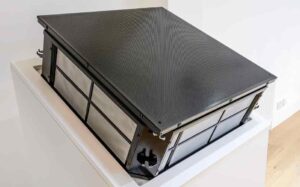US closer to adopting hydrocarbon fridges
1st May 2017USA: The use of hydrocarbon refrigerants in domestic refrigerators in the USA has moved a step closer after the approval of a new safety standard by the US Underwriters Laboratories (UL).
UL has adopted a new safety standard, UL 60335-2-24 Edition 2, that will allow domestic fridges and freezers to use up to 150g of hydrocarbon refrigerants like propane and isobutane. This brings the US into line with requirements elsewhere in the world. Under the current UL 250 standard, which will be replaced next year with the new standard, only 57g of hydrocarbons are allowed.
While other countries have been using hydrocarbon fridges for over a decade, US consumers have continued to purchase around 12 million new fridges a year using R134a. It is estimated that there are more than two billion hydrocarbon fridges in use elsewhere around the world, but the current 57g charge limit in the USA is deemed too small to allow cost effective and energy efficient manufacturing.
Despite this barrier, R134a is scheduled for phase out in domestic fridges under EPA regulations in 2021. It will now require the US EPA to update the Significant New Alternatives Policy (SNAP) regulations to include the new safety standard to allow hydrocarbon fridges to be sold in the United States as well.
Propane (R290) was approved for use in 2011 but it was not until last year that a number of others were approved for use under the SNAP programme. A 150g charge limit on hydrocarbons already applies for certain uses in commercial refrigeration.
“The revision of the UL refrigerator standard is just one part of a much bigger picture, with more progress needed in a number of other types of equipment and products,” writes Christina Starr, climate policy analyst at environmental group the Environmental Investigation Agency, on the EIA website. “Other standards for air conditioning and commercial refrigeration equipment also need to be updated in order to allow for safely expanded charge sizes,” she adds.
Related stories:
https://www.coolingpost.com/features/will-the-us-follow-europe-with-hydrocarbons/
https://www.coolingpost.com/world-news/epa-proposes-approval-of-hydrocarbons/








